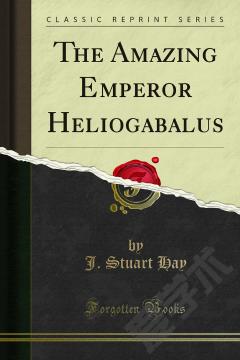The Great Caliphs —— The Golden Age of the 'Abbasid Empire
----- 大哈里发
The flowering of the 'Abbasid caliphate between 750 and 1258 CE is often considered to be the classical age of Islamic civilization. In the preceding 120 years the Arabs - inspired by their powerful new version of Abrahamic monotheism, Islam - had conquered much of the known world of antiquity and established a vast empire stretching from Spain to China. But was this empire really so very different, as has often been assumed, from what it superseded? The Great Caliphs originally and creatively explores the immense achievements of the 'Abbasid age through the lens of Mediterranean history. When the Umayyad caliphs were replaced by the 'Abbasids in 750, and the Arab capital moved to the purpose-built city of Baghdad, Iraq quickly became the centre not only of an imperium but also of a culture built on the foundations of the prior great civilizations of antiquity: Greece, Rome, Byzantium and Persia. Debunking several popular misconceptions about the Arab conquests, Amira Bennison shows that, far from seeing themselves as 'replacing' or purging the 'occidental' culture of the ancient world with a 'pure' and 'oriental' Islamic doctrine, the 'Abbasids perceived themselves to be as much within the tradition of Mediterranean and Near Eastern empire as any of their predecessors.Like other outsiders who inherited the Roman Empire, the Arabs had as much interest in preserving as in destroying, even while they were challenged by the paganism of the past and could not therefore embrace it with completely open arms. Inspired by that past as well as building creatively on its foundations, the 'Abbasids and their rulers inculcated and nurtured precisely the 'civilized' values which western civilization so often purports to represent, sometimes in apparent opposition to Islam. The Great Caliphs shows what a huge debt Europe in fact owes to its former Muslim rulers.
{{comment.content}}








 京公网安备 11010802027623号
京公网安备 11010802027623号